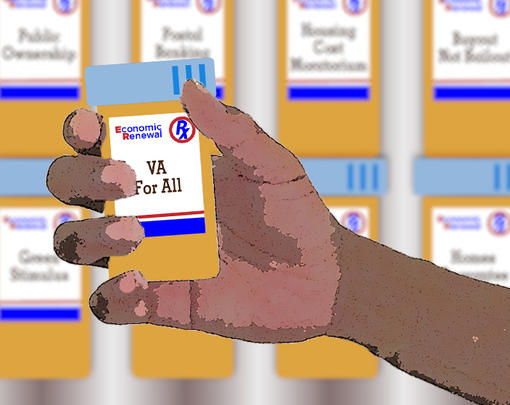The repeated police killings of unarmed Black people have driven a movement to defund and demilitarize police departments. One step many are calling for is the termination of the federal law known as Section 1033, the policy of transferring military equipment to police departments, free of charge.
Under Section 1033, $7.4 billion worth of war machinery has been transferred to police departments since the 1990s. That has scaled up as Iraq War equipment became surplus, making available to local police equipment like MRAP (mine resistant, ambush protected) vehicles recently used to attack Black Lives Matter protesters.
Even small towns receive ridiculous amounts of equipment. Winthrop Harbor, Illinois, with under 7,000 residents, received 10 helicopters, a mine-resistant armored vehicle, two Humvees and other equipment worth over $6.5 million dollars. Such transfers are justified for counterterrorism purposes, but it seems unlikely that Winthrop Harbor has a terrorism problem that requires 10 helicopters to address.
These programs also include disposals to the U.S. Border Patrol, who according to the Marshall Project received over $25 million worth of aircraft.
The Defense Department can use Section 1033 to treat unneeded war equipment as a domestic public investment. Congress’ indulgence of military budget requests ensures this is no sacrifice: the Pentagon simply buys new equipment from corporate partners whenever the next war begins. We sacrifice other priorities—materials and labor usable for housing, schools, and hospitals are instead used to build weapons that kill Black and Brown people at home and abroad.
Instead, let’s adopt the principle of beating swords into plowshares. A civilian office could be established to ensure repurposable vehicles and equipment are made available for civilian, non-police ends (such as disaster response) as part of a permanent reduction in the size of the military. We should be cautious about even civilian transfers happening in the context of a cycle of disposal and repurchase as wars ramp up and down.
That should be coupled with bringing defense contracts in-house under public, civilian control. Privatization—”the military-industrial complex”—creates a complicated legal architecture that locks in spending and makes oversight difficult.
Defunding police departments (and funding other programs that keep communities safe and address human needs) is necessary, but without federal action to discontinue Section 1033, police departments facing budget crunches could turn to the military as a substitute funder. The BREATHE Act—legislation drafted by the Movement for Black Lives and introduced by Reps. Rashida Tlaib of Michigan and Ayanna Pressley of Massachusetts, would eliminate Section 1033 entirely. An incoming federal administration should champion the BREATHE Act. Local activists should call for prohibition of police departments’ participation in the 1033 program and returning military equipment within their jurisdictions.
Repealing Section 1033 would end a major channel of police militarization and the myth that local residents bear no cost for the instruments of repression in their communities.







